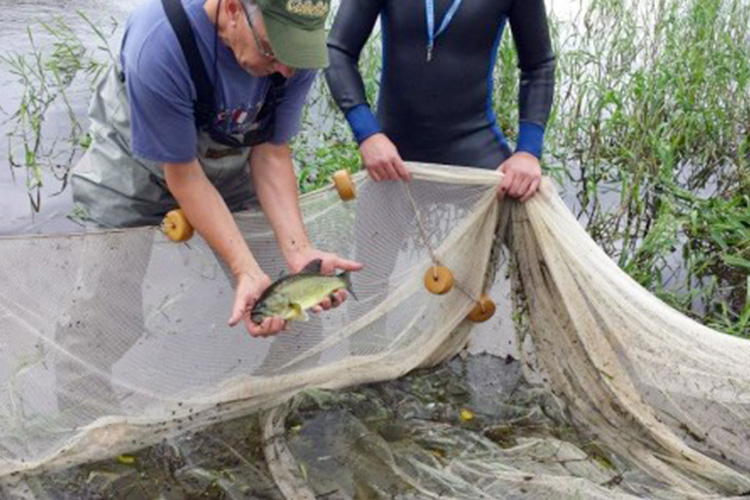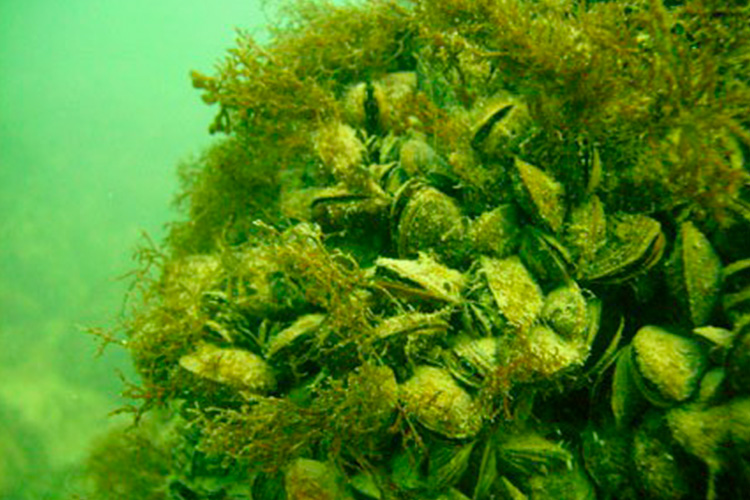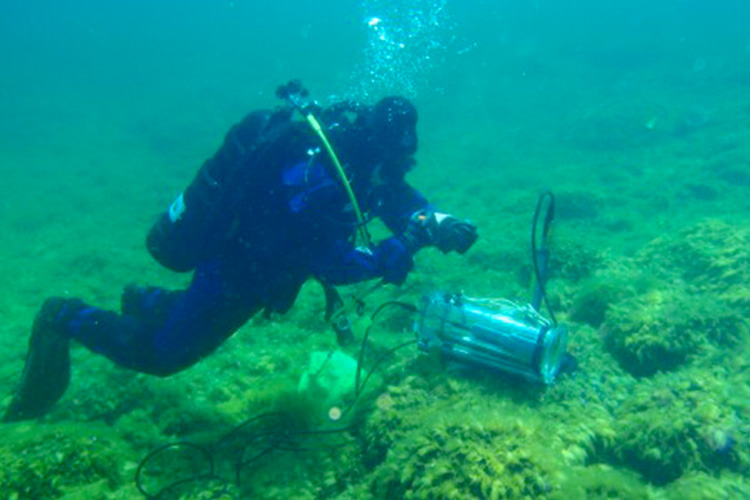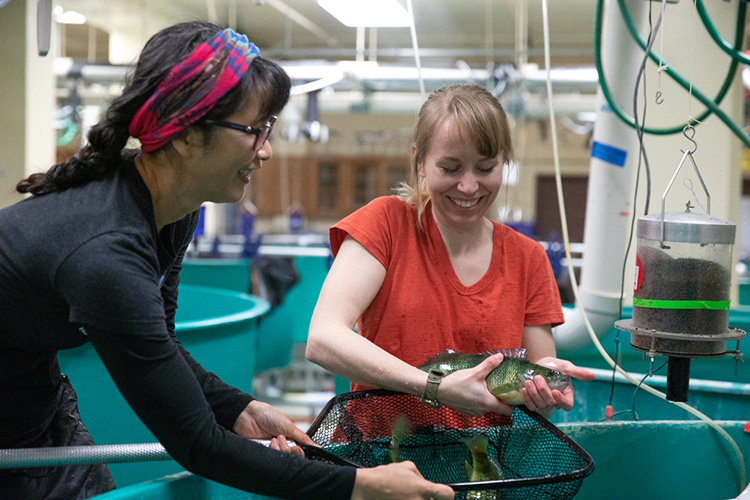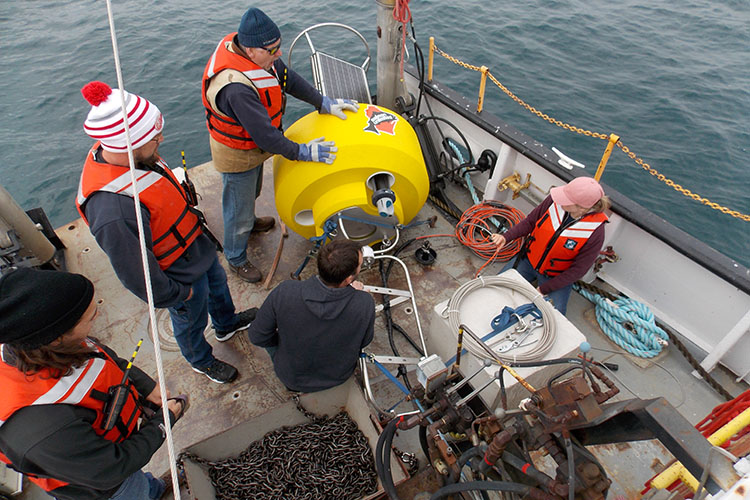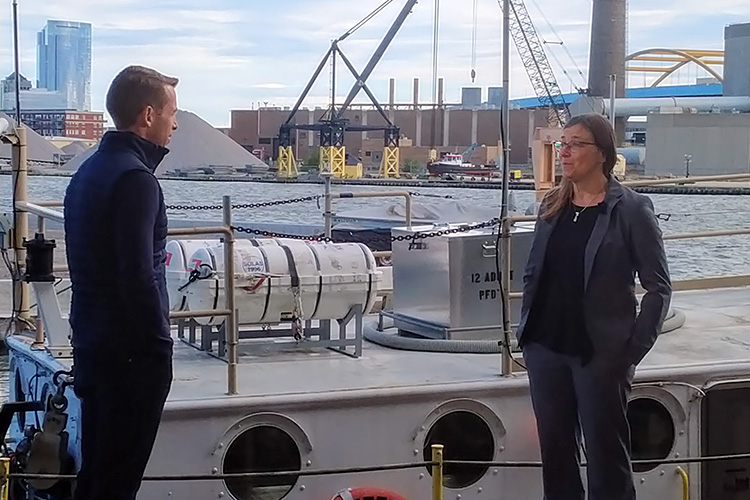Freshwater Research
Our mission is to advance fundamental and strategic science and train the next generation of freshwater professionals to inform policy, improve management, and promote the health and sustainability of freshwater systems worldwide.
Investment in our research continues to increase, with funding from the National Science Foundation, the National Oceanic and Atmospheric Administration, the National Institutes of Health, the U.S. Department of Agriculture, the state of Wisconsin and local governments, as well as corporate partners, foundations and private donors.
Human and Ecosystem Health
Legacy and emerging containments. Fecal pollution and pathogen transmission. Intense human activity and engineered modifications of lakes, rivers and aquifers.
These changes have significantly compromised our natural water resources, impacting water quality and the life that depends on it, including human lives. We study freshwater biological and chemical contaminants and pollutants, the effects on indigenous organisms and populations, and the impact on humans who use water. Scientists use model organisms for environmental disease studies and provide translational research and policy development that fosters ecosystem remediation and restoration for improved public health. We examine health and sustainability of urban coastal communities, aging infrastructure and its impacts, and how changing climate and demographics affect our crucial water resources.

Freshwater System Dynamics
What makes aquatic ecosystems tick? Why is one lake clear, while another is green with algae? What species of fish, and how many fish, can a lake support? How are the structure and function of aquatic systems affected by invasive species, climate change, weather conditions, and land use?
Answers to these questions rely on an understanding of how physical, chemical and biological processes interact. These dynamic processes are studied here by sampling from boats and ships, SCUBA diving, deployment of in situ sensors, laboratory experiments and computer modeling. Our focus is on the North American Great Lakes, but we also work in other lakes and rivers around the world. Our research helps to advance science while guiding the management of aquatic ecosystems crucial for health, wealth and quality of life.
Freshwater Technology
Freshwater scientists are developing new technologies essential for scientific exploration, observation, monitoring, sampling and forecasting, as well as for conservation, food production and water treatment.
Our aquaculture (fish farming) research supports Great Lakes species protection and management for fish such as yellow perch, walleye, and lake sturgeon; develops environmentally friendly intensive recirculating systems for raising diverse fish; and optimizes feed technology and management practices in the industry.
We operate three seasonal environmental monitoring buoys in Lake Michigan as part of the Great Lakes Observing System. Our buoy dashboard is updated every 10 minutes. In addition, researchers support numerous smaller buoys that monitor public health and launch buoys on behalf of external partners.
Freshwater Policy and Economics
What is the value of water? How does it affect our quality of life? What can we do to make our cities more resilient? What policies can help us sustain our water resources into the future, and protect us from legacy and emerging problems? How can science inform our decision making, and how can management questions inform our science?
Water policies and laws guide the management of freshwater resources. Our faculty include legal experts and natural resource economists to bridge the gap between science, policy and management. This area of research focuses on the growing need for managing an increasingly scarce resource and developing interdisciplinary solutions to freshwater issues, including water quality for human health and the restoration of Great Lakes ecosystems.

